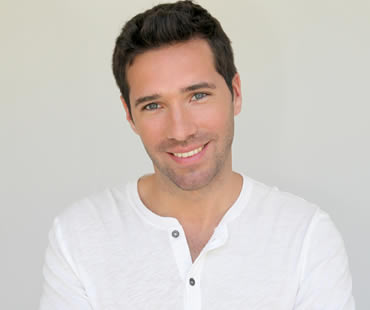
When you look your best, you exude confidence and grace. A vibrant, white smile can add to the image you convey. Cosmetic dentistry has risen in popularity because it allows people to transform their appearances. Make an appointment with your cosmetic dentist in Ryde, Campsie, Kogarah, and Haymarket for a consultation to discuss your smile enhancement options. While some patients choose a complete smile makeover, any of the following procedures can take your smile from dull to dynamite.
Teeth Whitening
The aging process as well as lifestyle choices can dull your smile. With teeth whitening, you can remove stains and look years younger. Most dentists recommend professional teeth whitening, which you can accomplish through in-office sessions or take-home kits.
Bonding
If you have small chips, gaps, or cracks in your smile, your dentist may suggest dental bonding. To repair the damaged area, your dentist will use a tooth-colored resin, which is hardened with a special light. Dental bonding blends in with your natural teeth and restores the look of your smile.
Porcelain Veneers
Created from fine dental porcelain, veneers can totally change your appearance. With porcelain veneers, your dentist can alter the size, shape, and color of your teeth. Depending on your situation, the doctor may suggest custom veneers designed just for your smile, or no-prep veneers, which can be bonded to your teeth but removed at a later time.
Composite Fillings
Over time, metal fillings can crack and seep, causing oral health problems, as well as impacting your smile’s appearance. Tooth-colored fillings are constructed to match your original teeth so they blend in seamlessly. Because they bond to the tooth, composite fillings won’t change shape or leak.
Accelerated Orthodontics
For straighter teeth in three to nine months, consider accelerated orthodontics. Usually, accelerated orthodontics works best for people with mild issues to correct or for those who want to straighten front teeth for an important event like a wedding.

Do you find yourself hiding your mouth behind your hand as you smile or laugh? Do you avoid smiling or laughing broadly so you are able to hide your teeth? Do you dread speaking in public, going out, or eating in public because you have concerns about the appearance of your teeth?
If this sounds familiar, you should talk to a cosmetic dentist right away. Cosmetic dentistry is the name for any type of dental work that improves the patient’s aesthetic appearance. It includes bonding, dental crowns, dental bridges, tooth implants, porcelain or resin veneers, gum grafts, and/or the removal of the gum tissue or tooth structure. Braces are also considered a cosmetic dental procedure, as is tooth whitening or bleaching.
Chipped, misaligned, or unattractive teeth can lead you to be self-conscious about your appearance. Missing teeth can affect you professionally and personally, and over time, can cause the shape of your face to change as the surrounding teeth begin to shift, making you look older than you actually are.
Do you feel as though you are being held back, unable to reach your goals socially or in business, because of concerns about your teeth? Do you feel isolated because you are embarrassed or ashamed to connect with others because of the condition of your teeth or gums? Don’t let your dental concerns hold you back. Talking with your cosmetic dentist can be the first step toward living the full life you desire.
Life events such as weddings, reunions, or homecomings can be cause for beginning a cosmetic dentistry journey. Events such as job interviews, first dates, or preparing for an important photograph are all good reasons for sprucing up your smile. Your smile goals can be large or small, and may take one visit or more.
Your cosmetic dentist in Ryde, Campsie, Kogarah, and Haymarket has the training, knowledge, and expertise to make the best possible plan for you. A cosmetic dentist can address anything impeding you from achieving your healthiest, best smile and from being your most attractive, most confident self.
Contact one of our dental offices Ryde, Campsie, Kogarah, and Haymarket

The desire for a better looking and better functioning smile has been around since ancient times. As early as 3000 BC, there is evidence that people used sticks to clean their teeth. Early toothbrushes were made of animal hair in the late 15th century.
The earliest forms of cosmetic dentistry are believed to be dentures made from ivory and bone by the Etruscans around 700 BCE. Other dentures were made from animal or even human teeth taken from corpses. Near 200 CE, the Etruscans had moved on to using gold to perform the functions of a dental crown or bridge.
Ancient Egyptians made a whitening toothpaste of vinegar and ground pumice stone, while the Romans utilized the ammonia from urine in their toothpastes, a practice that existed in some form into the 1700s.
Dental implants of human teeth were used in Europe in the 1700s for replacement teeth, but the practice was rejected due to repeated failures. Over the next hundred years, metal was used – and was also subsequently rejected.
The end of the 18th century and the entre 19th century showed great strides in cosmetic dentistry, particularly in the field of prosthetic dentistry, with the success of the porcelain denture. Molds were made of existing mouths with plaster, allowing dentists to provide the greatest denture fit and comfort available to patients thus far.
In the 1840s, the first rubberized material used as a base for dentures was invented, called Vulcanite. The first dental lab created specifically to produce prosthetic dental appliances was established in the 1850s. Porcelain dental crowns gave way to porcelain fused to metal crowns in the 1950s, and Vulcanite gave way to acrylic in the early 20th century, materials we still use today.
Your cosmetic dentist in Ryde, Campsie, Kogarah, and Haymarket is a skilled professional whose techniques have been practiced and refined by those dentists who came before for thousands of years. Today, we are at the pinnacle of the knowledge and expertise of trained cosmetic dentists and with the variety of successful methods and materials that will work for any cosmetic need.
Contact one of our dental offices Ryde, Campsie, Kogarah, and Haymarket

Not all dental procedures are extensive and invasive. Cosmetic dentistry offers many treatments to improve your smile that are relatively simple and require little time in the dental chair. If you have good overall oral health but are unhappy with your smile, you may want to consider some of these options for quick improvement.
Teeth whitening is one of the easiest and most popular cosmetic dental treatments for instantly improving the quality of your smile. Every day we expose our teeth to damaging and dulling foods and beverages that result in a dingy smile. Professional teeth whitening can whiten your teeth as much as ten shades in as little as one office visit, leaving you with a healthier and younger looking smile.
Dental bonding is an excellent way to repair small imperfections on teeth quickly, such as a discolored, chipped, or oddly shaped teeth. Bonding is essentially a simplified version of a veneer or a crown using tooth-colored resin to bond to the tooth and repair the problem. Bonding can usually be completed in a single visit to your dentist.
Many dentists are now offering snap-on teeth. A Snap-On Smile is a removable appliance that covers your natural teeth. The appliance uses your natural teeth to stay in place and does not require any additional adhesive to hold in place. A Snap-On Smile can be removed during sleep and for cleaning, but otherwise stays in your mouth for all of your usual activities. Patients with special needs, such as fear of the dentist or medical conditions which preclude extensive dental procedures, may also benefit from the use of snap-on teeth.
For more information about how to quickly and easily improve the look of your smile, schedule a consultation with cosmetic dentist Dr. Anju. It is easier than you may think to get that beautiful smile in no time!
Contact one of our dental offices Ryde, Campsie, Kogarah, and Haymarket

If you are unhappy with the look of your smile due to stained or imperfect teeth, you may want to consider visiting a cosmetic dentist for a smile makeover. Studies have shown that people with beautiful smiles are perceived to be more successful, trustworthy and approachable. While this is an obvious benefit to pursuing a smile makeover, rejuvenating your smile through cosmetic dentistry procedures has other advantages as well:
- Enhances confidence and improves self-esteem
- Prevents tooth loss and decreases the risk of infection and disease because straight, smooth teeth without gaps are easier to keep clean
- Creates a healthier and more youthful appearance
- Restores strength and functionality of teeth
- Allows for easier brushing and flossing of teeth
- Increases motivation to maintain excellent oral care
- Provides natural-looking results that compliment your facial structure
Cosmetic and restorative dentistry at our Ryde, Campsie, Kogarah, and Haymarket dental offices offers a wide array of treatments to improve your smile and overall oral health. Your smile makeover can be tailored to fit your individual needs and could include any of all of the following dental procedures:
- Teeth whitening
- Cosmetic bonding
- Porcelain veneers
- Tooth-colored fillings
- Dental implants and bridges
- Braces or Invisalign
- Gum contouring
A smile makeover will usually combine two or more of these treatments to achieve the result you desire. Most smile makeover procedures are non-invasive, and some can be completed in as little as one office visit while others may require multiple appointments.
Thanks to current advances in dental technology, you no longer have to settle for a less than perfect smile. Consult with a qualified dental professional to find out how you can enjoy the benefits and advantages of a bright, new smile with a smile makeover.
Contact one of our dental offices Ryde, Campsie, Kogarah, and Haymarket

Porcelain veneers have become a popular option in the past few years for dental patients who wish to brighten and repair their smile. While traditional porcelain veneers offer a lifelike quality and excellent durability, their placement usually requires the removal of some of the tooth surface enamel, which is an irreversible procedure.
A promising solution for patients who wish to avoid altering the tooth structure are no-prep or minimally invasive veneers. No-prep veneers offer the same advantages of traditional veneers but eliminate or reduce the need to grind, cut, or file down the teeth.
Lumineers are one of the most popular of the “no-prep” variety of veneers. Lumineers use an extremely thin veneer that is placed on the front side of your teeth. The placement of Lumineers does not require the modification of the natural tooth structure or the use of temporary veneers. Lumineers produce beautiful smiles for patients who prefer to not physically alter their teeth.
DURAthin veneers are similar to Lumineers in that they require no modification of the tooth structure or filing of the enamel. DURAthin veneers utilize very thin customized porcelain shells that match the shape and color of your teeth. These shells are roughly the width of a contact lens and are bonded to the front of your teeth. Because of their size and shape, DURAthin veneers are an ideal choice for correcting minor cosmetic dental issues.
Vivaneers are among the thinnest veneers available, making them easy to apply in as little as one office visit. Because they require no preparation to your natural tooth, there is no need for shots, drilling or anesthesia. If you are unhappy with the results, Vivaneers are easily reversible.
To find out if these or other “no-prep” veneer options would be a solution for improving your smile, schedule a consultation with a Meadowbank cosmetic dentist Dr. Anju .









